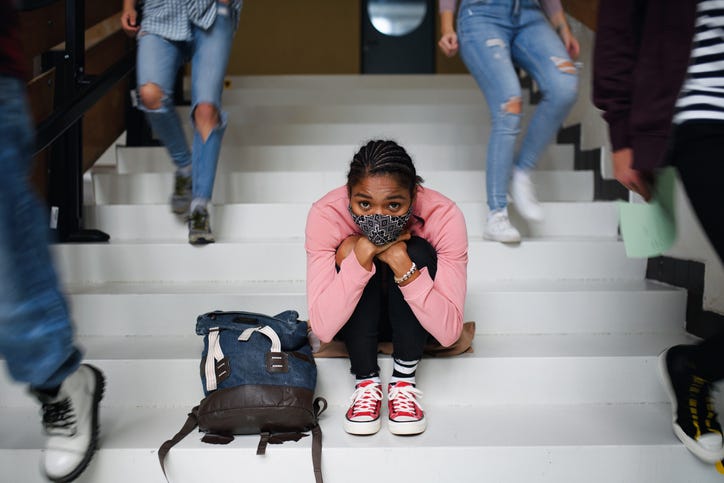
A new survey from the Centers for Disease Control and Prevention has found that there is a growing mental health crisis among adolescents and school-age children.
The survey was conducted through the CDC's Division of Adolescent and School Health. Researchers looked at the behaviors and experiences of 7,705 public and private high school students from January to June 2021.
It found that almost half of teens reported consistently feeling sad or hopeless in the 12 months before the CDC surveyed them. In addition, the high school students said they felt sad or hopeless almost every day for two weeks or more in a row.
The feelings were so strong among the students that they reported they stopped doing what they usually would throughout the day or week.
Kathleen Ethier, the lead of the CDC division, shared in an interview with NPR that mental health among teens has been declining since the agency began tracking it more than 20 years ago. However, the pandemic has fast-tracked the numbers, making the situation worse.
"We've known for a while that mental health among young people was going in the wrong direction," Either said in a Q&A with NPR. "Prior to the pandemic, we were seeing increases in persistent feelings of sadness and hopelessness."
Other shocking statistics from the survey included 47% of lesbian, gay, and bisexual teens reporting they had "seriously considered committing suicide," Either said.
"What we really saw in the survey was the extent to which the pandemic has been incredibly disruptive for young people and their families," Either said. "And then, although all students were impacted by the pandemic, not all students were impacted equally."
Either pointed to vulnerable groups, like Asian students, Black students, multiracial students, and LGBTQ youth, that have struggled with the pandemic, saying they are most at risk.
However, she also shared that there is hope to address the crisis.
The survey found that teens who feel connected to those they go to school with had better mental health than those who have connections.
Either said those "who have others at their school who care about them, who are interested in their well-being, who are interested in their success."
"Young people who feel that way — anywhere in 7th to 12th grades — 20 years later have better outcomes in terms of their mental health, in terms of substance use, in terms of experience and perpetration of violence, and in terms of sexual health," she added. "It has a really broad-ranging impact."
LISTEN on the Audacy App
Sign Up and Follow Audacy
Facebook | Twitter | Instagram
